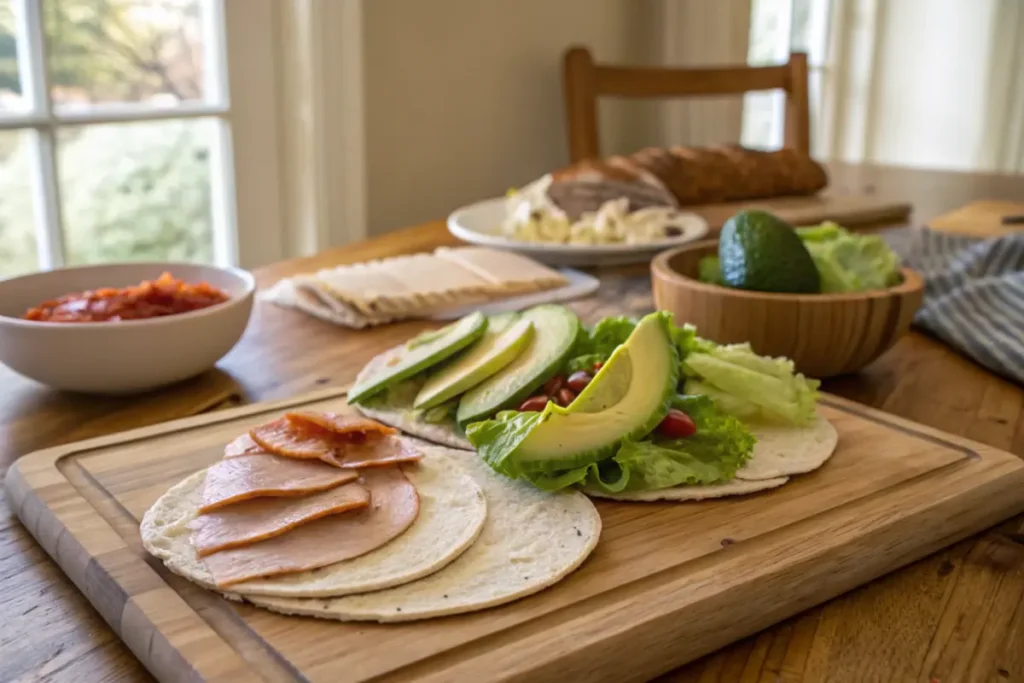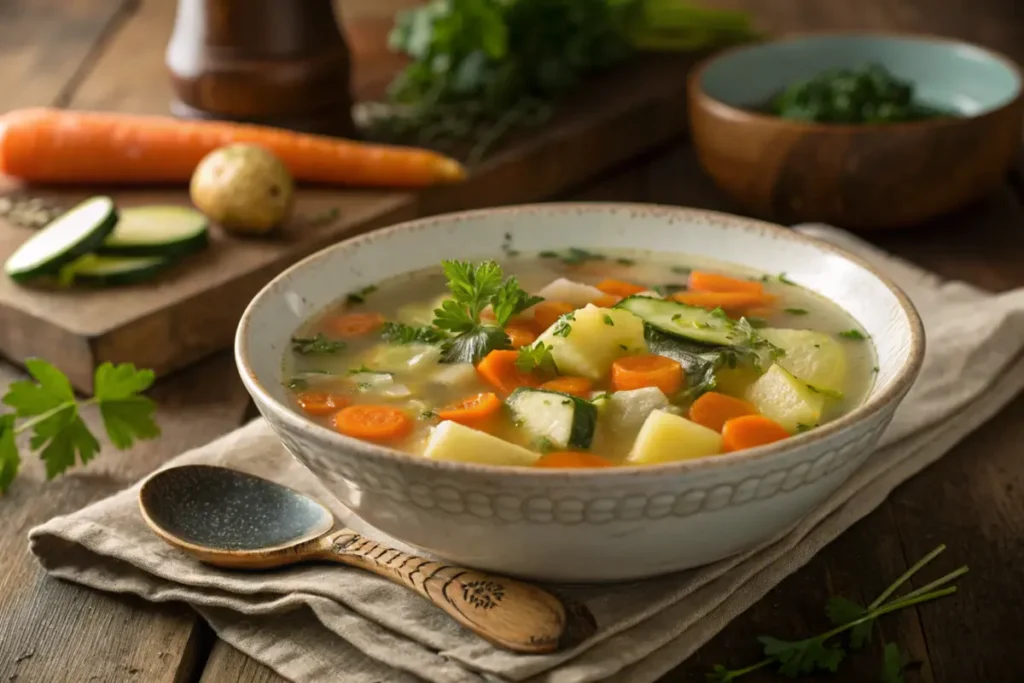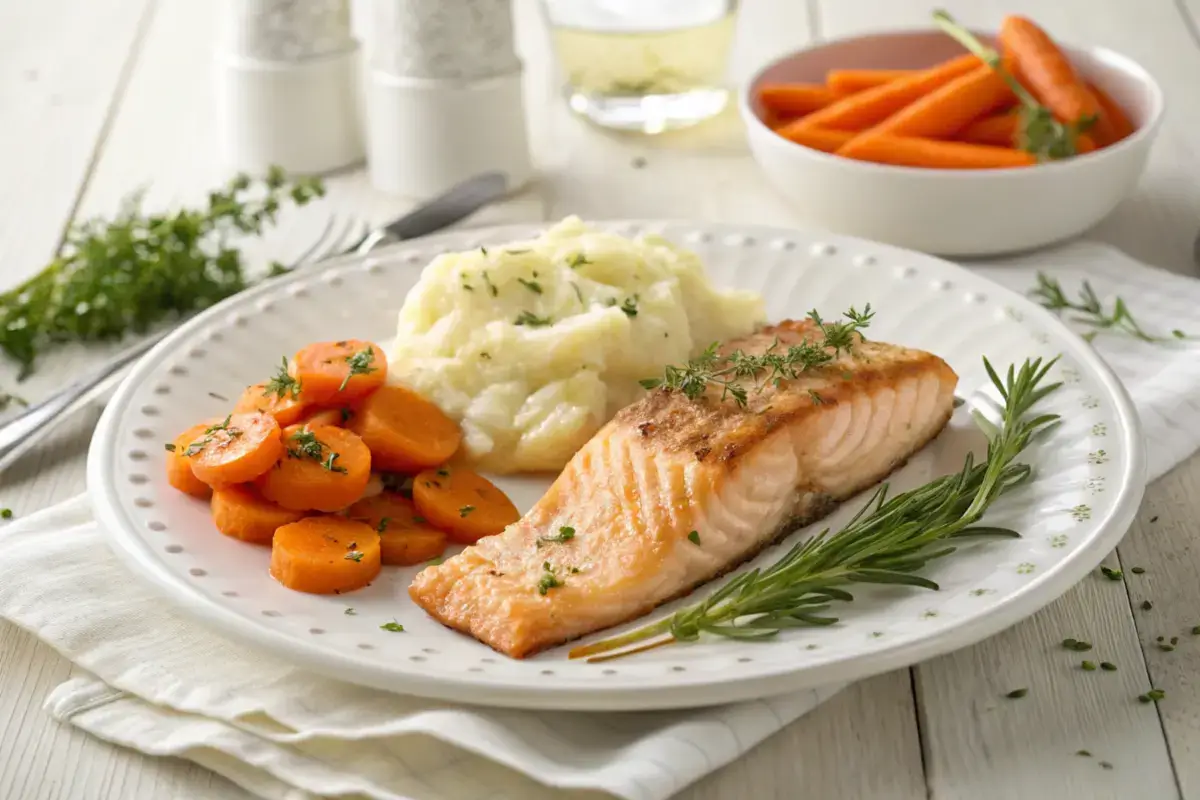Introduction
Managing ulcerative colitis can feel like walking a tightrope between flare-ups and remission. What you eat plays a significant role in controlling symptoms and maintaining your overall health. This article provides a detailed, 7-day meal plan for ulcerative colitis, focusing on nutritious and gentle foods. Whether you’re navigating a flare or enjoying remission, this plan will offer meal ideas that are both delicious and easy on the digestive system. We’ll also cover essential dietary tips, foods to avoid, and practical strategies to make meal planning easier
Understanding Ulcerative Colitis and Its Nutritional Needs
What is Ulcerative Colitis?
Ulcerative colitis (UC) is a chronic condition characterized by inflammation and ulcers in the colon and rectum. It’s one of the two primary types of inflammatory bowel diseases (IBD), alongside Crohn’s disease. UC symptoms include abdominal pain, diarrhea, fatigue, and weight loss, which can vary in intensity depending on whether you’re experiencing a flare or remission.
While the exact cause of UC isn’t fully understood, it’s believed to result from an overactive immune response in the gut. Stress, genetics, and environmental factors can also play a role. Importantly, what you eat can significantly impact how well you manage your symptoms.
The Role of Diet in Managing Symptoms
There’s no one-size-fits-all diet for ulcerative colitis, but nutrition plays a key role in controlling symptoms. During a flare-up, foods that are too fibrous, spicy, or acidic can worsen inflammation. Conversely, eating mild, easily digestible meals can help soothe the digestive tract and reduce discomfort.
Diet isn’t just about avoiding triggers; it’s about ensuring you get enough nutrients. UC can impair nutrient absorption, making it essential to focus on nutrient-dense foods like lean proteins, low-fiber vegetables, and easily digestible carbohydrates.
Balancing Nutritional Needs and Restrictions
One challenge of managing ulcerative colitis through diet is finding the balance between nourishment and comfort. You’ll need to include a variety of foods that are gentle on the stomach but also packed with vitamins and minerals.
Key nutrients to prioritize include:
- Protein: Lean meats, fish, and eggs support muscle repair and immune health.
- Calcium and Vitamin D: Especially important if you avoid dairy products. Opt for fortified alternatives.
- Electrolytes: UC symptoms like diarrhea can lead to dehydration and electrolyte loss. Broths and bananas can help replenish these.
By understanding how food interacts with UC, you can create a diet that keeps you nourished and helps manage symptoms effectively.
Key Dietary Considerations for Ulcerative Colitis
Foods to Include: Nutrient-Dense Options
A 7-day meal plan for ulcerative colitis focuses on easy-to-digest and nutrient-rich foods to support gut health. Here are some top picks:
- Lean Proteins: Chicken, turkey, fish, and eggs are gentle on the digestive system while providing essential amino acids. Incorporate options like grilled salmon or scrambled eggs for breakfast.
- Low-Fiber Vegetables: Choose cooked or steamed veggies such as carrots, zucchini, and potatoes. These are less likely to irritate inflamed gut linings.
- Easily Digestible Carbohydrates: White rice, mashed potatoes, and oatmeal are excellent sources of energy and are gentle on digestion.
- Probiotic-Rich Foods: Yogurt (lactose-free if needed) and kefir can support gut health by introducing beneficial bacteria.
- Healthy Fats: Avocado and olive oil are anti-inflammatory and provide long-lasting energy.
By incorporating these items into your meal plan, you’ll enjoy meals that are both satisfying and tailored to your needs.
Foods to Avoid: Common Triggers
Certain foods can exacerbate ulcerative colitis symptoms, especially during flares. Knowing what to skip is just as important as knowing what to eat:
- High-Fiber Vegetables: Raw veggies, broccoli, and Brussels sprouts may lead to discomfort.
- Spicy Foods: These can trigger inflammation and irritation.
- Dairy Products: Avoid milk and cheese unless lactose-free, as many with UC are lactose intolerant.
- Acidic Foods: Citrus fruits and tomatoes might worsen inflammation.
- Carbonated Drinks and Alcohol: These can upset the digestive system and exacerbate dehydration.
Eliminating these foods ensures your gut can heal without unnecessary irritation.
The Importance of Hydration and Probiotics
Staying hydrated is critical. UC symptoms like diarrhea can lead to dehydration, so drink plenty of water, herbal teas, and broths. Additionally, consider adding probiotics to your diet. Research shows that probiotics may help extend remission periods, balancing your gut bacteria and reducing inflammation.
The 7-Day Meal Plan for Ulcerative Colitis
Crafting a 7-day meal plan for ulcerative colitis ensures you’re nourished and your symptoms are under control. Below is a sample plan to inspire your meal prep.
Day 1: Balanced Choices
- Breakfast: Banana smoothie with almond milk, protein powder, and a side of oatmeal sweetened with honey.
- Lunch: Grilled chicken salad with mixed greens and a bowl of vegetable soup.
- Dinner: Baked salmon with mashed potatoes and steamed carrots.
Day 2: Gentle Proteins and Carbs
- Breakfast: Scrambled eggs with a slice of gluten-free toast.
- Lunch: Turkey and avocado wrap with shredded lettuce.
- Dinner: Grilled chicken breast with white rice and steamed green beans.

Day 3: Creative Low-Fiber Meals
- Breakfast: Fruit smoothie made with low-fiber fruits like banana and yogurt.
- Lunch: Fish tacos with baked cod, white rice, and mild salsa.
- Dinner: Roasted turkey breast with mashed potatoes and a simple balsamic-dressed salad.
Day 4: Soothing Recipes
- Breakfast: Egg white omelet with steamed spinach.
- Lunch: Tuna salad served with crackers and a side of vegetable soup.
- Dinner: Grilled shrimp with quinoa and steamed broccoli.
Day 5: Satisfying Options
- Breakfast: Oatmeal with maple syrup and lactose-free yogurt.
- Lunch: Chicken wrap with lettuce and carrot ginger soup.
- Dinner: Baked cod with mashed sweet potatoes and steamed asparagus.
Day 6: Varied Proteins
- Breakfast: Yogurt parfait with low-fiber fruits.
- Lunch: Salmon salad with rice soup.
- Dinner: Grilled lamb with mashed potatoes and green beans.
Day 7: Wrapping Up with Balance
- Breakfast: Eggs with veggies and a toasted gluten-free English muffin.
- Lunch: Turkey avocado wrap with tomato soup.
- Dinner: Baked chicken with mashed sweet potatoes and steamed zucchini.
Each day in this plan is designed to reduce flare risks while keeping meals interesting and nutritious.
This structure aligns with the needs of those managing UC and ensures variety without sacrificing digestive comfort. For meal prep inspiration, check out related guides like quick and easy high-protein breakfast ideas for more versatile options.
Tips for Sticking to the Meal Plan
Grocery Shopping and Meal Preparation Tips

Adopting a 7-day meal plan for ulcerative colitis is much easier with a little prep work. Start by creating a comprehensive shopping list for the week. This ensures you have everything you need for each meal and reduces the temptation to eat something less suitable. Focus on fresh, easily digestible foods like lean proteins, white rice, and low-fiber vegetables.
Meal prepping is your best friend. Spend a few hours chopping vegetables, cooking proteins, and portioning meals into containers. This way, you’ll have ready-to-eat options even on your busiest days. To save even more time, consider batch cooking recipes like baked salmon or roasted turkey.
Another helpful trick? Stock your pantry with essentials like gluten-free crackers, almond milk, and low-sodium broths. These ingredients are staples in a UC-friendly diet and can be used in multiple meals throughout the week.
Adjusting the Plan for Personal Tolerances
No two people with ulcerative colitis experience symptoms the same way. Pay close attention to how your body reacts to different foods and adjust accordingly. For instance, if even low-fiber fruits cause discomfort, consider swapping them out for bananas or cooked apples.
It’s also important to rotate your meal options. While a structured plan is helpful, variety prevents boredom and ensures you get a broader range of nutrients. You could try introducing new recipes or variations on your favorites, like a grilled chicken wrap with a different sauce.
For more ideas, check out quick and easy dinner recipes. These meals are great for keeping your plan exciting and easy to stick to.
FAQs About Ulcerative Colitis Meal Planning
Can I Include Dairy in My Meal Plan?
This depends on your tolerance. Many people with ulcerative colitis are sensitive to lactose, which can worsen symptoms. If you’re unsure, try lactose-free alternatives like almond milk or lactose-free yogurt. These can easily be incorporated into the 7-day meal plan for ulcerative colitis.
Are Probiotics Necessary for Symptom Management?
While probiotics aren’t a cure-all, they can be a helpful addition to your diet. Foods like yogurt and kefir introduce healthy bacteria into your gut, potentially reducing inflammation and promoting remission. If you’re not keen on dairy, there are non-dairy probiotic drinks you can try.
What Are the Best Low-Fiber Fruits and Vegetables?
Low-fiber options like bananas, cooked carrots, and zucchini are excellent for managing UC symptoms. These foods are gentle on the gut and provide essential vitamins and minerals. Avoid raw vegetables and high-fiber choices like broccoli during flares, as they can irritate your digestive tract.
For more meal ideas and ingredient tips, explore our article on healthy shredded chicken recipes. Shredded chicken is versatile and fits well into a UC-friendly diet.
Long-Term Strategies for Managing Ulcerative Colitis
The Role of a Registered Dietitian
When it comes to a 7-day meal plan for ulcerative colitis, a registered dietitian can be a game-changer. These professionals tailor meal plans to suit your unique needs, helping you identify trigger foods while ensuring your diet remains balanced and nutritious.
A dietitian can also guide you through tricky dietary adjustments, like reintroducing fiber during remission. They’ll ensure you get enough vitamins and minerals, even if you have dietary restrictions. Regular consultations provide personalized advice, empowering you to manage your symptoms effectively while maintaining variety in your meals.
Building Variety into Your Diet While Managing Symptoms
While sticking to safe, low-fiber options is essential during flares, don’t be afraid to expand your menu during remission. Adding different proteins, grains, and cooked vegetables can prevent boredom and boost your overall nutrient intake.
For example, try switching from white rice to quinoa for a meal or incorporating roasted sweet potatoes instead of mashed ones. The key is to introduce one new food at a time, monitoring your body’s reaction. Over time, this approach can help you build a more diverse and enjoyable diet without compromising your comfort.
Additionally, exploring new recipes—like baked salmon with fresh herbs or chicken wraps with homemade sauces—keeps mealtime exciting. Experimenting with UC-friendly recipes ensures that your 7-day meal plan for ulcerative colitis remains sustainable and delicious.
Wrapping Up and Final Thoughts
Why a 7-Day Meal Plan Matters
A structured 7-day meal plan for ulcerative colitis not only simplifies your daily routine but also helps you stay proactive about your health. By focusing on nutrient-dense, gentle foods, you reduce the risk of flares and improve overall well-being. This consistency also makes it easier to identify potential trigger foods, giving you greater control over your condition.
Staying Flexible and Open to Adjustments
Remember, a meal plan is a tool, not a rigid rulebook. Your body’s needs may change over time, especially as you learn which foods work best for you. Be patient with yourself and willing to adapt. Working with healthcare providers and staying informed about new dietary strategies can make all the difference.
Finally, don’t forget to celebrate your progress. Even small changes in your diet can have a big impact on how you feel. With a bit of planning and support, you can turn your 7-day meal plan for ulcerative colitis into a sustainable lifestyle that prioritizes both comfort and nourishment.
FAQs About Ulcerative Colitis Meal Planning
How Do I Customize a 7-Day Meal Plan for Ulcerative Colitis?
Customizing a 7-day meal plan for ulcerative colitis involves understanding your body’s unique needs. Start by identifying foods that trigger symptoms—these might include spicy dishes, high-fiber vegetables, or dairy. Replace these with gentler alternatives like mashed potatoes, cooked zucchini, and lactose-free yogurt.
For variety, rotate proteins such as chicken, fish, and turkey throughout the week. Introduce new foods cautiously during remission, one at a time, to monitor their effects.
Can I Include Snacks in My Meal Plan?
Absolutely! Snacks are a great way to stay nourished between meals. Choose options that are easy to digest and packed with nutrients, such as bananas, rice crackers, or lactose-free cheese. Probiotic-rich snacks like yogurt can also support gut health.
If you’re planning snacks, consider the timing. Avoid overloading your digestive system by spacing snacks evenly between meals. This ensures consistent energy without adding stress to your gut.
What If I Don’t Have Time to Cook Every Day?
Meal prepping is the perfect solution for busy schedules. Spend a few hours each week preparing meals in bulk, such as grilled chicken, steamed vegetables, or simple soups. Store them in portioned containers for quick access. This way, sticking to your 7-day meal plan for ulcerative colitis becomes much easier, even on hectic days.
Additional Resources and Final Thoughts
Exploring More Recipes
Finding new, UC-friendly recipes is essential for keeping your meals exciting and nutritious. For example, explore easy-to-make dishes like salmon with lemon and herbs or turkey wraps with gluten-free tortillas. Websites like Top Fitness Meals often feature recipes that align with dietary needs.
Don’t hesitate to experiment with substitutions—swap ingredients like white rice for quinoa or add lactose-free options to classic recipes. This ensures your diet remains balanced and flavorful without compromising comfort.
Building a Support System
Managing ulcerative colitis is easier with a support system. Whether it’s working with a dietitian, joining online forums, or consulting your healthcare provider, having guidance can make meal planning less overwhelming.
Remember, the journey to better health is a gradual process. With dedication and the right strategies, your 7-day meal plan for ulcerative colitis can evolve into a sustainable lifestyle that minimizes symptoms and promotes overall well-being.

